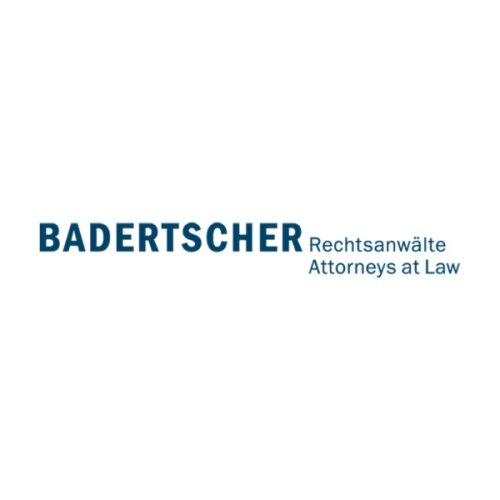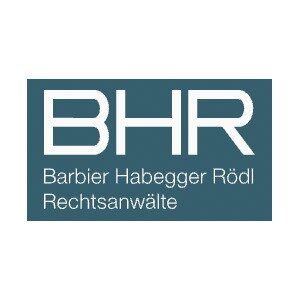Best Mining Law Lawyers in Zug
Share your needs with us, get contacted by law firms.
Free. Takes 2 min.
List of the best lawyers in Zug, Switzerland
About Mining Law in Zug, Switzerland
Mining Law in Zug, Switzerland refers to the set of legal principles and regulations that govern the exploration, extraction, and processing of mineral resources within the canton. Zug is known as a business-friendly region with a focus on innovation and sustainability, and its legal framework for mining reflects Swiss federal law alongside cantonal-specific rules. The primary aim is to ensure environmentally responsible mining, fair allocation of rights, and proper compliance with safety and operational standards.
Why You May Need a Lawyer
Individuals and businesses may encounter situations where legal assistance in Mining Law becomes necessary. Common scenarios include navigating the complexities of obtaining mining permits or concessions, dealing with land use and property rights, addressing environmental concerns or regulatory compliance, handling disputes with landowners or government bodies, and negotiating contracts with partners or service providers. A lawyer can provide guidance through bureaucratic processes, review legal documentation, ensure regulatory adherence, and represent your interests in negotiations or court proceedings.
Local Laws Overview
Mining activities in Zug are primarily governed by the Swiss Federal Mining Act, but the canton has the authority to further regulate through cantonal decrees and administrative procedures. Key legal aspects include:
- Permitting and Licensing: All mining activities require valid permits from cantonal authorities. The process involves extensive environmental and safety reviews.
- Land Use: Mining rights are distinct from land ownership. Operators must secure both mining concessions and agreements with landowners, as required by Swiss law.
- Environmental Protection: Compliance with strict environmental standards is mandatory. This may involve impact assessments and mitigation plans.
- Health and Safety: Operators must adhere to Swiss and cantonal safety standards to protect workers and the public.
- Royalties and Taxes: Mining companies may be subject to royalties and local taxes, which are regulated at both federal and cantonal levels.
- Closure and Rehabilitation: Mine closure requires approval and often involves specific environmental restoration obligations.
Understanding the interplay between federal and cantonal law is essential for compliance and operational success in Zug.
Frequently Asked Questions
What types of minerals can be legally mined in Zug?
The types of minerals that may be mined are defined by federal and cantonal regulations. These typically include construction materials such as gravel, sand, and stone. Extraction of metals or precious minerals is less common and subject to stricter controls.
How do I obtain a mining permit in Zug?
You must apply to the relevant cantonal authority, submitting a detailed project plan, environmental assessments, and any required landowner agreements. Approval may involve a public consultation phase.
Do I need to own the land to mine it?
No, mineral rights are separate from surface land ownership in Switzerland. You need a mining concession and must reach an agreement with the landowner regarding access and compensation.
Are there special environmental requirements?
Yes, environmental protection is a central element of any mining project. Operators must conduct environmental impact assessments and implement measures to minimize environmental harm.
What happens if environmental regulations are violated?
Violation of environmental laws can lead to fines, suspension of permits, mandatory remediation, and potentially criminal charges in severe cases.
How are disputes between miners and landowners resolved?
Disputes are typically resolved through negotiation. If an agreement cannot be reached, the matter may be brought before cantonal authorities or civil courts.
Who regulates mining activities in Zug?
Mining activities are regulated by both federal and cantonal agencies. In Zug, the cantonal Department of Economic Affairs, or its designated sub-agency, is the primary authority.
What taxes and royalties apply to mining operations?
Taxes and royalties are set by federal and cantonal law and vary depending on the mineral type and scale of the operation. It is important to consult with an accountant or tax advisor familiar with Zug's specific regulations.
Can foreign companies obtain mining rights in Zug?
Foreign companies are allowed to apply for mining rights, but they must comply with all Swiss legal requirements just like domestic entities. Legal representation is often essential for navigating these processes.
What is required when closing a mining operation?
Mine closure involves submitting a rehabilitation plan and demonstrating compliance with environmental obligations. The site must be restored to an acceptable state, and financial guarantees may be necessary to ensure proper remediation.
Additional Resources
For those seeking more information or official guidance on Mining Law in Zug, the following resources can be valuable:
- Department of Economic Affairs of the Canton of Zug
- Swiss Federal Office of Topography (swisstopo) for geological data
- Swiss Federal Office for the Environment (FOEN) for environmental guidelines
- Local legal aid offices specializing in environmental and business law
- Swiss Mining Association (where applicable) for industry standards and updates
Next Steps
If you require legal assistance in Mining Law in Zug, Switzerland, consider taking the following steps:
- Assess your situation and gather all relevant documents related to your mining interests or project.
- Identify whether your query involves permitting, environmental compliance, contracts, or disputes.
- Contact a legal professional with expertise in Swiss and Zug mining regulations for a consultation. Most lawyers offer an initial meeting to discuss your needs and explain potential costs.
- If applicable, reach out to relevant cantonal authorities for procedural guidance.
- Stay informed about local developments and changes in law that could impact mining projects in Zug.
Early legal advice can help you avoid costly mistakes and ensure smooth compliance with all applicable laws in the often complex area of Mining Law.
Lawzana helps you find the best lawyers and law firms in Zug through a curated and pre-screened list of qualified legal professionals. Our platform offers rankings and detailed profiles of attorneys and law firms, allowing you to compare based on practice areas, including Mining Law, experience, and client feedback.
Each profile includes a description of the firm's areas of practice, client reviews, team members and partners, year of establishment, spoken languages, office locations, contact information, social media presence, and any published articles or resources. Most firms on our platform speak English and are experienced in both local and international legal matters.
Get a quote from top-rated law firms in Zug, Switzerland — quickly, securely, and without unnecessary hassle.
Disclaimer:
The information provided on this page is for general informational purposes only and does not constitute legal advice. While we strive to ensure the accuracy and relevance of the content, legal information may change over time, and interpretations of the law can vary. You should always consult with a qualified legal professional for advice specific to your situation.
We disclaim all liability for actions taken or not taken based on the content of this page. If you believe any information is incorrect or outdated, please contact us, and we will review and update it where appropriate.









